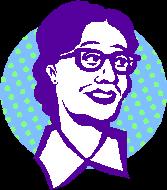My sixth graders at Congregation Etz Chayim, in Palo Alto, blew me away this past month. As part of my teaching on Israel, I gave them a quiz on Ancient Israel and the beginnings of Modern Zionism. It was similar to quizzes I had given in the past two years, but I raised the stakes... I offered an "extra-awesome bonus" which would give them automatic full-credit on the quiz plus a prize if they could give a well-conceived, thorough answer to the following question: What were the differences between traditional Jewish yearnings for a return the the Land of Israel and Theodor Herzl's Zionism? It was a serious question which I thought would allow one or two kids to show their deep understanding of the material we had covered. One or two, AT MOST, I thought could synthesize relevant answers.
I was wrong.
Five kids--eleven-year-old, mind you--gave AWESOME answers! So, I'm honoring them by sharing their responses to you. You'll see some recurrent themes. Other possible answers could have mentioned messianic beliefs about the connection between returning to the Land of Israel and the end of days, or traditional desires for a Davidic monarchy versus Herzl's ideas about more modern, European-style political structures, or traditional theological arguments versus cultural, pragmatic arguments for a Jewish homeland.
Answer 1, from E.
The difference between Herzl's Zionism and traditional Zionism is that Herzl wanted to just get the Jews away from the pogroms and other events; he wanted to bring them to another country/state (Uganda), even if it wasn't Israel. He wanted to get the Jews away from harm, even if it made it harder to get them back into Eretz Yisrael. Traditional the Jews thought only Israel was fit for the Jewish homeland and that any other place would be almost against God's will.
Answer 2, from M.
The difference between Theodor Herzl's Zionism and traditional yearnings to return Jews to Israel was the fact that Herzl's idea was Political Zionism. Herzl was willing to negotiate with other world leaders to set up a political State of Israel. He knew Jews would need a place to live, and fast. Anti-Semitism was growing around the world, in the form of pogroms, and the Jewish people needed shelter. Herzl continuously stressed the fact that the Jewish State could be anywhere; he even suggested Argentina. The difference of Herzl's Zionism is to set up a political Jewish country as opposed to be able to specifically in Palestine. The traditional yearning was the hope to live in Palestine as a culture.
Answer 3, from D.
Theodor Herzl, unlike traditional Jewish nationalism, believed that this Jewish safe haven could be anywhere and that getting land in Israel was less important than having a Jewish country run by Jews, with Jews in control of the government and in the majority. He wanted eventually to settle in Israel, but he knew anywhere would do temporarily. Traditional nationalism was that this place needed to be in Israel--the Promised Land.
Answer 4, from O.
Herzl's Zionism was more to protect his people and have a place where they could fit in than was traditional yearnings for Israel. The traditional yearnings were people wanting God to let them go back to their Promised Land, where they belong. Herzl became a Zionist because he gave up hope of Jews ever being able to fit in. That fact made him stand out. When the other Zionists heard the Uganda plan, many of them were too traditional to accept it. They said that they would only accept the Promised Land, not some random part of Africa. Herzl was all for the plan, hoping it would build a safe haven for Jewish and stop our people's suffering.
Answer 5, from V.
Herzl's Zionism was the belief that Jews should have their own state where they don't have to deal with pogroms and other antisemitic attacks. On the other hand, returning to the Land of Israel as the "Promised Land" will not cease the antisemitic attacks, it will only fulfill the Jews' spiritual beliefs.
Monday, December 13, 2010
Naches from my students
Labels:
anti-semitism,
Dreyfus,
God,
Herzl,
Israel,
palestine,
quizzes,
sixth grade,
Zionism
Thursday, December 2, 2010
Wednesday, December 1, 2010
Hanukkah celebrations and stories from around the world
Be'chol Lashon/In Every Tongue is an organization offering educational resources and programs highlighting the diversity of Jewish customs and practices around the world. They offer here eight bits about Hanukkah as it is practiced by diverse Jewish communities: Chanukah around the World: 8 Ways to Celebrate.
Another custom is practiced in Italy and Yemen--reading a book called Megillat Antiochus.
For more resources on Hanukkah around the world:
Be'chol Lashon: Educational Resources: Holidays: Chanukah
Another custom is practiced in Italy and Yemen--reading a book called Megillat Antiochus.
For more resources on Hanukkah around the world:
Be'chol Lashon: Educational Resources: Holidays: Chanukah
Subscribe to:
Comments (Atom)
